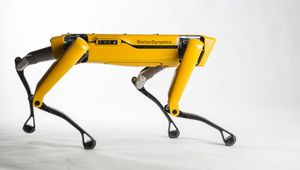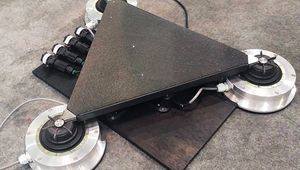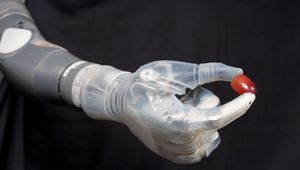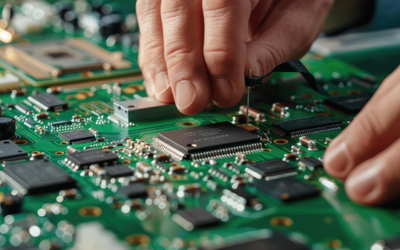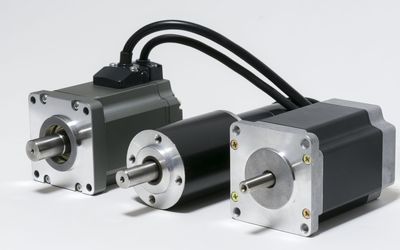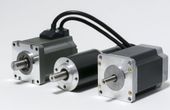NXP Semiconductors MC56F80000-EVK Evaluation Kit
Evaluation kit that acts as a platform for the NXP MC56F80x digital signal controllers MCU family with form-factor compatibility to Arduino R3 pin layout.
Technical Specifications
| Product | Evaluation Kit |
| Product Type | Development Boards & Kits - Other Processors |
| Clock | 8 - 16 |
| Sensors | 3-axis MEMS accelerometer |
| Connectivity | USB interface, Virtual serial port, and Arduino R3 compatible I/O connectors |
| Power management | OpenSDA USB, Virtual serial port USB, External 5V adapter |
| Applications | Motor control, Power conversion, Lighting control, Industrial automation, Medical devices, and Consumer electronics. |
Overview
NXP MC56F80748 has 64 kB on-chip flash memory and 8 kB on-chip RAM. The MC56F80xxx device family is based on a 32-bit 56800EF core with up to 100 MIPS at 100 MHz core frequency. The device coordinates the rotation of the digital computer (CORDIC) engine. The MC56F80000-EVK board has OpenSDA, 3-axis MEMS accelerometer, PWM and user LEDs, buttons, ADC test circuits, OPAMP test circuits, and external serial flash memory. The evaluation kit is a development platform for the MC56F80x digital signal controllers MCU family with form-factor compatibility to Arduino™ R3 pin layout.
MC56F80000-EVK Evaluation Kit Features
The MC56F80000-EVK evaluation kit is based on MC56F80748 digital signal controller (DSC). MC56F80x Digital Signal Controllers (DSCs) are based on the 100MHz, 56800EF DSP-core that provides math capabilities for advanced power conversion and motor-control applications. These controllers include peripherals such as an 8-channel eFlexPWM with 312ps resolution, a quadrature decoder, dual high-speed 12-bit ADCs, and three analog comparators. The digital signal controller also contains two operational amplifiers that provide a programmable gain of up to x16. The EVTG and inter-module crossbar build an interconnection network between module I/Os and external pins with hardware logic/trigger operation capability to achieve flexible system configuration.
The evaluation kit integrates an OpenSDA, which provides an onboard debugger and a virtual serial port for rapid prototyping and product development. OpenSDA MCU is a Kinetis K Series K26 family device on MC56F80000-EVK. For connectivity, users can use a 5 V input power supply using an external DC power supply connector, OpenSDA USB micro-AB connector, USB micro-AB connector, and LD1117 LDO for 3.3 V VDD supply. There is also MCU input/output access through Arduino R3 compatible I/O connectors.
MC56F80000-EVK uses a 3-axis MEMS accelerometer FXLS8974CF sensor for motion sensing. The kit supports both high-performance and low-power operating modes. MC56F80000-EVK has light-emitting diodes to monitor system functions, such as power-on, board faults, reset, etc. There are three user-defined LEDs and six LEDs controlled by 6 PWM channels. The information collected from LEDs can be used for debugging purposes.
Debugging is possible using an onboard OpenSDA circuit that supports programming and debugging with CodeWarrior. Users get a 14-pin JTAG port to connect with a standalone programmer to create and test various applications. Eclipse IDE is CodeWarrior for MCUs, while MCUXpresso Config Tools is a graphic tool to configure peripherals and provide stationeries within the CodeWarrior Software Development Kit (SDK). Both of these resources act as additional support for users.
Applications
MC56F80000-EVK evaluation kit is an affordable development board that can be used in a wide range of embedded applications that require precise control and real-time processing capabilities. Potential applications include motor control, power conversion, lighting control, industrial automation, medical devices, and consumer electronics.
Where to find it

Mouser Electronics
Mouser Electronics is a worldwide leading authorized distributor of semiconductors and electronic components.
References
Recommended Specs
Continue Reading
If you force anything through a length of pipe or cable, the amount of power at the supply end will inevitably diminish by the time it gets to the exit. Electrical cables are no different. When electric current travels through cables, its flow is always impeded by the cable's inherent DC resistance.
